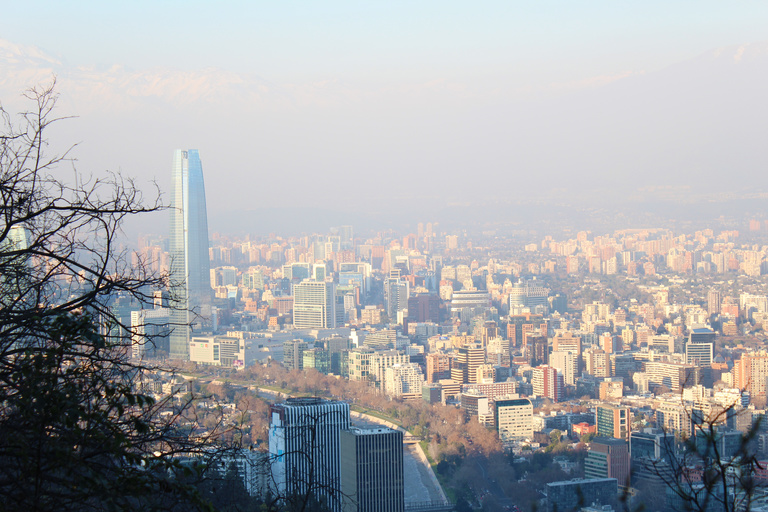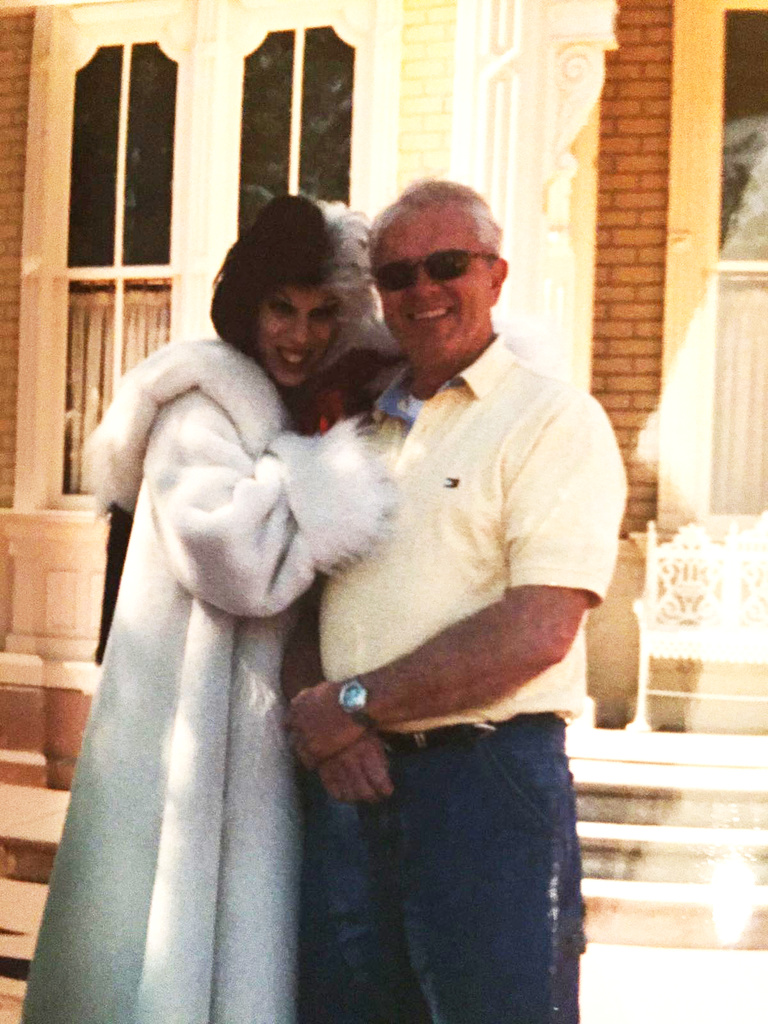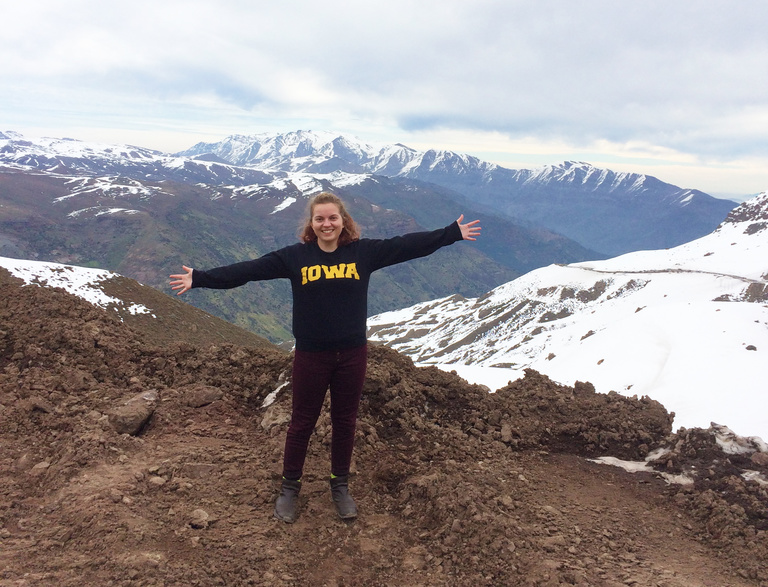
Santiago, Chile
Unfortunately, my first blog will not be a very happy one. A strong message presented itself on August 4th and I felt compelled to share it with all of you.
During my first week in Santiago de Chile, I attended the “Emergency Plan Meeting” held by my program (CIEE). The main thing they talked about was what to do in the event of a terremoto, an earthquake.
First, you protect yourself. During the actual earthquake, you duck under a sturdy table or stand in a door way, and protect your head. An earthquake is usually quite short; the last big earthquake Santiago experienced only lasted about two minutes. What you have to watch out for are the aftershocks.
My program director said that in the event that you can’t get ahold of your host family by phone, you walk home. No matter where you are in Santiago, you walk home. There will be too many people driving around like madmen, so you’re better off just walking yourself home. The aftershocks will happen for about a full day, maybe two days after the earthquake. As you walk home you have to keep a safe distance from high-rise and glass buildings, power lines, and precarious-looking trees in case a shockwave knocks them over.
So I was fully equipped with information on what to do in the event of an earthquake. However, on August 4th I experienced my own, personal terremoto.
I arrived in Chile on July 25th, and eleven days later my grandpa passed away. I had woken up that morning to a WhatsApp text from my mom. I just skimmed it—I was running late for a Spanish placement test—but I got the gist of it. She was telling me that he had passed. In that moment, I protected myself. I just continued with my morning because I couldn’t think about it. I threw my stuff in my backpack, asked my host dad for a pencil, and left the house.
But for that twelve-minute walk to the subway station, and for the entirety of the ride to the CIEE office, I was subconsciously repeating her words in my head. “He passed away… He was peaceful… Call us when you get the chance… He loved you very much.”
Aftershock Number 1 came once I got to the CIEE office. The office was filled with all the other US students, waiting to be led to our test. I pulled out my phone to fully read the text, but started crying and tried to go hide in the bathroom. The bathrooms were locked, so I just kind of stood in the hallway, crying to myself, until this guy from the program came into the hallway looking for a trash can to throw away his banana peel. He just kind of looked at me and asked if I was okay, and I ended up telling him what had happened. He was surprisingly empathetic and supportive.
Aftershock Number 2 came when I called my mom after the test. He was my paternal grandfather, so my dad was up in Wisconsin with my grandma and his two brothers. Just hearing a familiar voice brought the reality of it back, and—again—I started crying in the middle of the CIEE office’s bathroom. On my way home, that same guy from the program came over to me and asked how I was doing and if he could do anything.

Grandpa and Cruella
Aftershock Number 3 was less tearful, thank goodness. A girl in my program had asked me if something was wrong—apparently I looked a bit “off”—and when I told her what happened, she said we were going out for coffee right now. And we did. She bought me a coffee (which was completely unexpected and generous, by the way), sat me down, and prompted me to tell her all about my grandfather. So I did. And it was actually a really good experience. I told her about the quirky things he did when I was a kid (like act as if he’d fallen out of an airplane or got run over by a truck, or some other tragic event had happened to him, and he needed the five-year old “Dr. Martens” to help fix him). I told her about the time he flirted with Cruella DeVille at Disney World, about how he used to own a house-building business and that in his later years he was the carpenter/handyman for the local schools.
Telling her all the good memories I had of him was very therapeutic, and made it easier to tell my host family and my study abroad advisors. Telling his story also helped me get through being absent at his wake and funeral. I felt absolutely awful and pretty guilty about not being there, with my parents, with my grandma, with my little sister. It was a rough couple of days, but I found that I have a surprisingly large support group here, however many thousand miles away from home.
It’s been almost two weeks since he passed, and I’ve decided to write down things I have come to realize through this experience, and things that hopefully will help some fellow-abroader if a similar situation presents itself.
Things you need to realize and accept:
- There are people who support you and are there for you.
That random guy who needed to throw away his banana peel… The girl who I’d only known for eleven days… My host family, who I’d known for even less time… The small group of acquaintances that I’ve since become closer to… Not to mention all of the family and friends who are sending their thoughts and prayers from afar… All of these people are so supportive and empathetic, and I’m so, so thankful for that.
They might not express it in a way you’ll understand at the time. The night my grandpa died, a few of those acquaintances I mentioned before invited me out to a movie to help get it off my mind. The day of the wake, I was feeling especially mopey, so my host mom came into my room and said “Come on, we’re gonna try to make stir fry.” And that was the best stir fry I’ve ever had.
- Your life goes on.
Realize that your life will continue. Being abroad, for me, seems to have sped up that process. There hasn’t been a lot of time to sulk and grieve. My family has told me repeatedly that my grandpa would not have wanted me to stop my experience here or to put my life on hold as a because of his passing.
Things you can do:
YOU ARE ABROAD. There are so many things to do to keep yourself busy—use that.
- Do things with people in your program/host family
A lot of abroaders are involved in programs that have other students from the States. Use these people to ease your way into life in a foreign country. They are going through almost the exact same experiences you are going through. And host families prove extremely valuable assets! Not only did my host family tell me about the city and things to do here, but they also let me tag along to birthday parties and family outings (one of which was lunch in the ANDES)!
- Get “lost”
A safe kind of “lost!” Like, a controlled kind of “lost.” Don’t just go wandering around without your wits about you until you find yourself not knowing where the heck you are. That’s of no use to anyone. The “lost” I’m talking about is more of an exploration than anything else. Venture out to a place that interests you, but know how to find your way back!
- Try to make “native” friends
This is kind of hard, to be honest. The majority of my classes (with actual Chileans) haven’t started yet, so I haven’t been able to talk with many “natives”. I made a friend on the subway (the metro) one day, though! So that’s a start.
- Recount stories of the loved one lost
It’s a surprisingly therapeutic experience. I feel as though when I talk about my grandfather and all the light he’s brought into my life, I’m bringing that light into other people’s lives. It’s as though he’s doing that himself, from some unknown place.
- Get involved
I’m joining my program’s soccer team (which very well could have been a dreadful mistake—I haven’t played soccer in years), and I’m looking to volunteer at a children’s hospital here in Santiago.
Hopefully, none of you readers will ever have to face something like this—abroad or otherwise. Nonetheless, I think the message is good to hear, and the advice valuable to have in your back pocket.

Me and the Andes
Thank you very much for reading,
Elly Martens—Santiago de Chile
*Elly Martens is studying biomedical engineering with a minor in Spanish at the University of Iowa. The Lindenhurst, Illinois, native is spending her semester at Universidad de Chile as part of the CIEE Liberal Arts Program in Santiago, Chile.
Student blog entries posted to this International Accents page may not reflect the opinions and recommendations of UI Study Abroad and International Programs. The blog is intended to give students a forum for free expression of thoughts and experiences abroad in a respectful space.